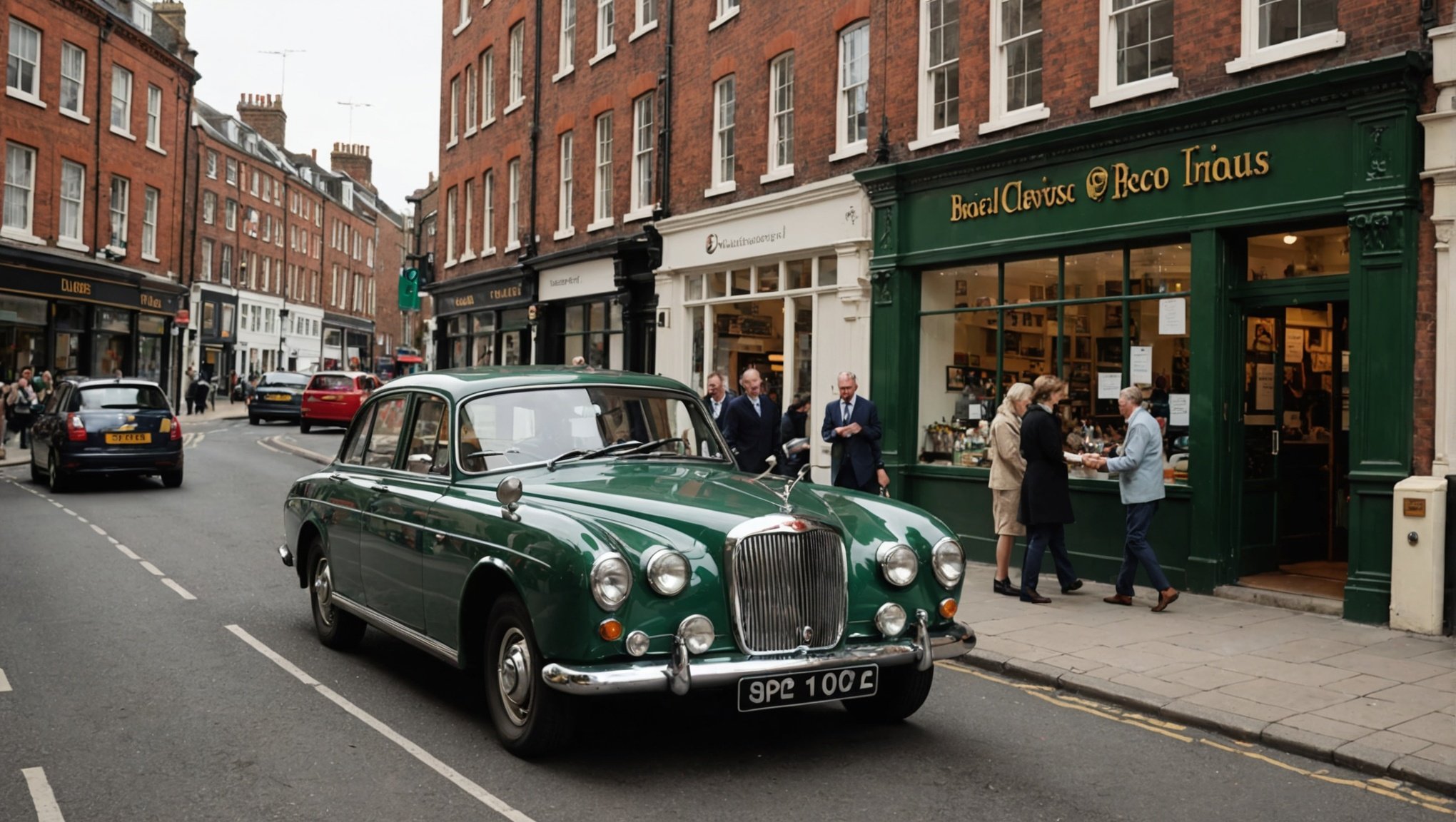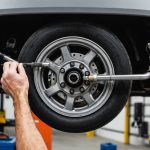Classic UK vehicles evoke nostalgia, but their carbon emissions can be a concern for eco-conscious drivers. Fortunately, cutting these emissions doesn't mean sacrificing style or performance. This guide reveals innovative strategies—ranging from fuel-efficient upgrades to sustainable driving practices—that allow you to enjoy your classic car while reducing its environmental impact. Discover how to transform your passion for vintage vehicles into a commitment to eco-friendly driving without compromising on the charm and character that defines them.
Effective Retrofitting Options for Classic UK Vehicles
Retrofitting classic cars is gaining popularity as a means to achieve carbon emissions reduction while preserving the charm of vintage vehicles. Among the various eco-friendly modifications available, electric conversion kits stand out as a leading choice. These kits replace traditional combustion engines with electric motors, significantly decreasing emissions and enhancing efficiency. Owners of classic cars can enjoy the silent operation and reduced maintenance that electric motors provide, making it a practical and sustainable option.
Also read : Mastering Your British Touring Motorcycle: Ultimate Guide to Rear Suspension Setup for Comfort on Long Rides
A notable example of successful retrofitting includes the conversion of the iconic Jaguar E-Type. This classic beauty now boasts an electric powertrain, demonstrating how modern technology can breathe new life into vintage cars. Similarly, the classic Mini has been retrofitted with an electric motor, offering a green alternative while maintaining its nostalgic appeal.
These case studies highlight the benefits of retrofitting, such as improved performance and environmental impact. By opting for electric conversion kits, classic car enthusiasts can contribute to a cleaner future without sacrificing the allure of their beloved vehicles. The shift towards more eco-friendly modifications is not just a trend but a necessary step towards sustainable transportation.
In parallel : Boosting Visibility for Classic UK Vehicle Drivers in Fog: Essential Tips and Techniques
Alternative Fuels for Classic Cars
Exploring alternative fuels offers classic car enthusiasts sustainable driving options without compromising their vehicle's heritage. These fuels provide an eco-friendly solution, reducing the carbon footprint of vintage vehicles.
Types of Alternative Fuels
Among the various biofuels for classic cars, ethanol and biodiesel are prominent. Ethanol, often derived from corn or sugarcane, can be blended with petrol, providing a cleaner burn. Biodiesel, made from vegetable oils or animal fats, serves as a diesel substitute, offering reduced emissions. Both options allow for a significant decrease in greenhouse gases compared to traditional fuels.
Compatibility with Classic Models
Compatibility is crucial when choosing alternative fuels. Ethanol blends, like E10 or E85, can often be used in classic cars with minor adjustments. However, high ethanol content may require modifications to fuel lines and carburettors. Biodiesel, on the other hand, is generally compatible with diesel engines, though older models may need upgraded seals and hoses to prevent degradation.
Environmental Impact Comparisons
When comparing emissions, alternative fuels present a clear advantage. Biofuels typically produce fewer pollutants than traditional petrol and diesel. This shift reduces harmful emissions, contributing to improved air quality and aligning with global sustainability goals. By opting for biofuels, classic car owners can enjoy their vehicles while supporting environmental conservation.
Maintenance Tips to Reduce Emissions
Maintaining a classic car is not just about preserving its aesthetic appeal; it's also crucial for controlling emissions. Regular maintenance plays a significant role in ensuring that vintage vehicles run efficiently and with reduced environmental impact.
Emissions reduction strategies begin with routine checks and servicing. Regularly inspecting and replacing air filters can significantly improve air flow, enhancing engine performance and reducing emissions. Additionally, ensuring your vehicle's spark plugs are in good condition helps maintain optimal combustion, further contributing to lower emissions.
Optimising fuel efficiency is another key aspect of classic car maintenance. Keeping tyres properly inflated reduces rolling resistance, thereby improving fuel economy. Moreover, aligning wheels and balancing tyres can prevent unnecessary drag, helping your vehicle run smoothly and efficiently.
For those committed to eco-friendly car care, choosing sustainable products is essential. Biodegradable cleaning agents and plant-based lubricants are excellent alternatives to traditional, more harmful options. These products not only minimise environmental damage but also protect your car's surfaces and components.
By incorporating these emissions reduction strategies into your maintenance routine, you can enjoy the timeless charm of your classic car while contributing to a more sustainable future.
Regulatory Considerations for Classic Car Owners
Navigating the landscape of classic car regulations is essential for enthusiasts aiming to stay compliant while enjoying their vintage vehicles. As environmental concerns grow, understanding the impact of emissions standards on classic cars becomes increasingly important.
Understanding Current Emission Regulations
In the UK, classic cars are subject to specific emissions standards designed to mitigate environmental impact. Vehicles over 40 years old are often exempt from certain emissions tests, recognising their historical value. However, these exemptions do not absolve owners from considering eco-friendly compliance measures. Retrofitting with electric motors or using alternative fuels can help meet modern expectations while preserving the vehicle's charm.
Potential Incentives for Eco-Friendly Modifications
To encourage compliance with emissions standards, the UK government offers incentives for eco-friendly modifications. These can include grants or tax relief for those retrofitting their classic cars with electric conversion kits or using biofuels. Such incentives aim to reduce emissions while supporting classic car enthusiasts in maintaining their vehicles' heritage.
Future Trends in Classic Car Regulations
Looking ahead, future classic car regulations may tighten as part of broader environmental policies. This could increase the demand for sustainable modifications and alternative fuels. Staying informed about regulatory changes will be crucial for classic car owners to continue enjoying their vehicles responsibly.
Innovations and Success Stories in the Classic Car Market
The classic car market is witnessing a surge in innovations that blend nostalgia with sustainability. Several companies are at the forefront of these developments, championing eco-friendly practices for vintage vehicles. Firms like Lunaz and Electric Classic Cars have made significant strides by offering electric conversion services, transforming classic models into sustainable classic cars. These conversions not only preserve the allure of the vehicles but also enhance their performance and environmental credentials.
Among the notable success stories is the transformation of the classic Porsche 911 into an electric powerhouse. This project exemplifies how cutting-edge technology can revitalise iconic cars. Another remarkable story involves a classic Land Rover Defender, now equipped with a zero-emission powertrain, showcasing the potential of sustainable retrofitting.
Looking ahead, the future of the classic car community appears promising with a strong emphasis on sustainability. Innovations in alternative fuels and electric conversions are expected to continue evolving, offering enthusiasts more options to enjoy their beloved vehicles responsibly. As awareness grows, the adoption of sustainable classic cars is likely to increase, paving the way for a greener future in the classic car market.
















